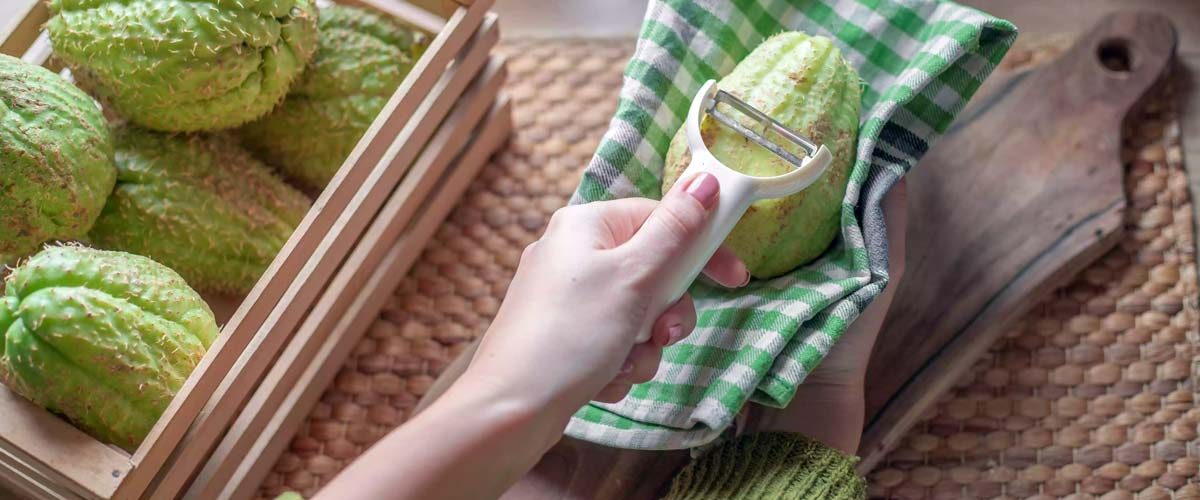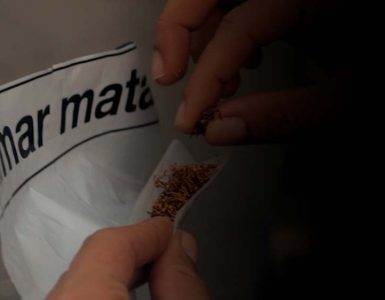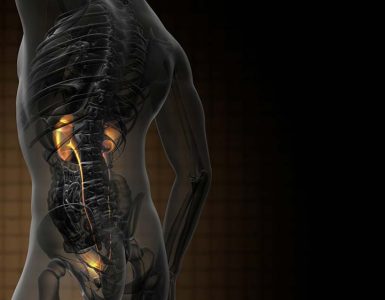High blood pressure or hypertension needs to be controlled because it is a silent killer that does not cause symptoms like other diseases1. Its prevalence is increasing worldwide and approximately one billion people are at risk of heart failure, heart attacks, kidney failure and blindness due to hypertension. Hypertension occur when blood volume increases and blood vessels narrow, causing the heart to contract more strongly to supply oxygen and nutrients to every cell in the body1.
Chayote is a plant which is used as food and medicine2. It is easily available and is relatively inexpensive and thus it can be an option to meet the needs of society. The leaves and fruits of chayote are known to have anti-inflammatory properties and can also lower blood pressure. The leaves can be used for treatment such as atherosclerosis and hyper-tension can even destroy kidney stones3.
Chayote has a diuretic alkaloid content, which can also open blood vessels that are blocked. Therefore, chayote can lower blood pressure. In this context researchers carried out a new study with aim to demonstrate that the intervention of instant chayote and nutritional education can reduce systolic and diastolic blood pressure in adults4.
For the study purpose, high school teachers were the study sample. They were divided into three groups i.e. Group I which was Intervention of instant chayote, Group II was Nutrition education intervention and Group III was of Nutrition education intervention and provision of chayote. Systolic and diastolic blood pressure was measured before and after intervention.
A significant decrease in systolic blood pressure was observed in Group III (combination of nutrition education and chayote). The decrease in blood pressure in hypertensive patients who are given chayote is due to chayote’s high levels of potassium, which binds to sodium and is excreted via sweat and other secretary channels. Reduced sodium in the blood results in a decreased fluid volume in the blood, causing a decrease in blood pressure5.
These research implications should be considered for patients who suffer from hypertension and instant chayote consumption and nutritional education are recommended for hypertensive patients to obtain a healthy lifestyle. Results of the current study suggest that instant chayote may represent an alternative preventive treatment for hypertension.
Nutritional education programs for hypertensive patients are becoming increasingly important as non-pharmacological methods of treatment for hypertension. It was thus established that Chayote has been reported to exhibit anti-hypertensive properties. Dichloromethane extracts of chayote produce cinnamic acid and α-linolenic acid, which exhibit antimicrobial properties and act as an antihypertensive.

Keywords:
Nutrition education, chayote, blood pressure, pre-diabetes, Anti-Hypertensive, non-pharmacological, preventive treatment, systolic blood pressure, research implications, healthy lifestyle, study sample, anti-inflammatory properties.
References:
- Yoon, S.S., Q. Gu, T. Nwankwo, J.D. Wright, Y. Hong and V. Burt, 2015. Trends in blood pressure among adults with hypertension: United States, 2003 to 2012. Hypertens, 65: 54-61.
- Mustafa, S.B., M. Zahid, N. Akhter, A. Kauser and I. Hussain et al., 2016. Medicinal plants and management of diabetes mellitus: A review. Pak. J. Pharm. Sci., 29: 1885-1891.
- Gordon, E.A., L.J. Guppy and M. Nelson, 2000. The antihypertensive effects of the Jamaican Cho-Cho (Sechium edule). West Indian Med. J., 49: 27-31.
- Sakung, J.M., Sirajuddin,S., Zulkifli, A., Abdul Rahman, S., A. A. Arsin, Masni, Jafar, N. and Bohari , 2018. Influence of Nutrition Education and Provision of Instant Chayote to Change in Blood Pressure. Pak. J. Nutr., 17: 386-391.
- Adrogue, H.J. and N.E. Madias, 2007. Sodium and potassium in the pathogenesis of hypertension. N. Engl. J. Med., 356: 1966-1978.
















Add comment